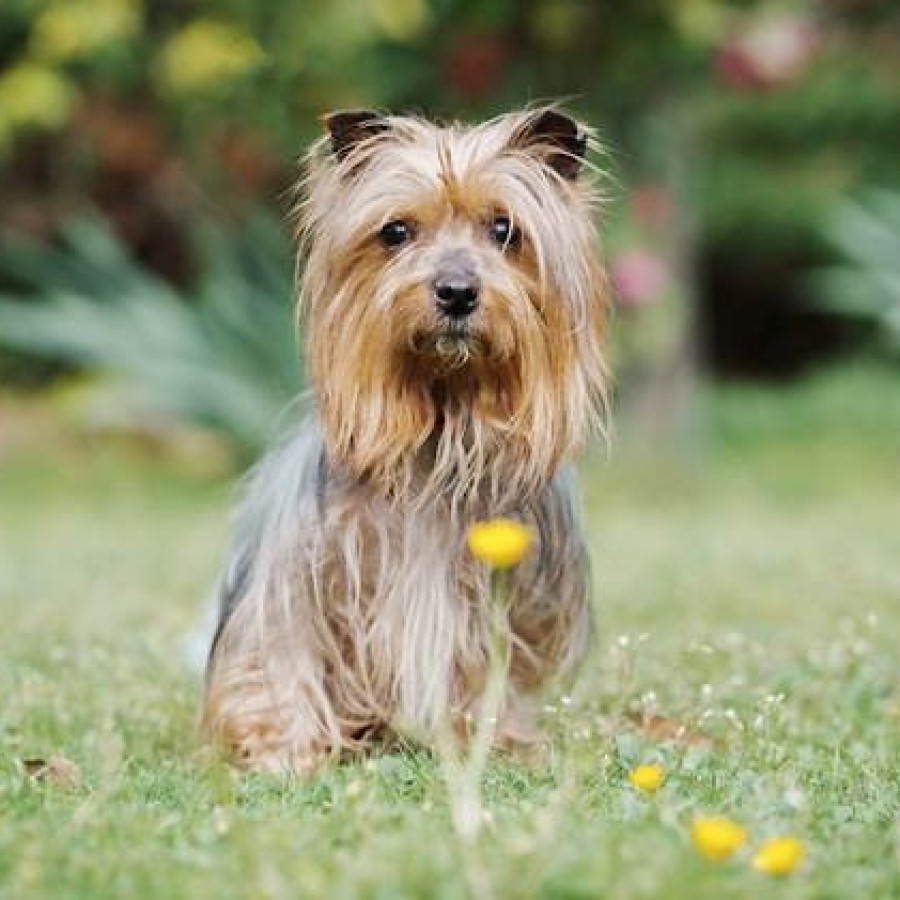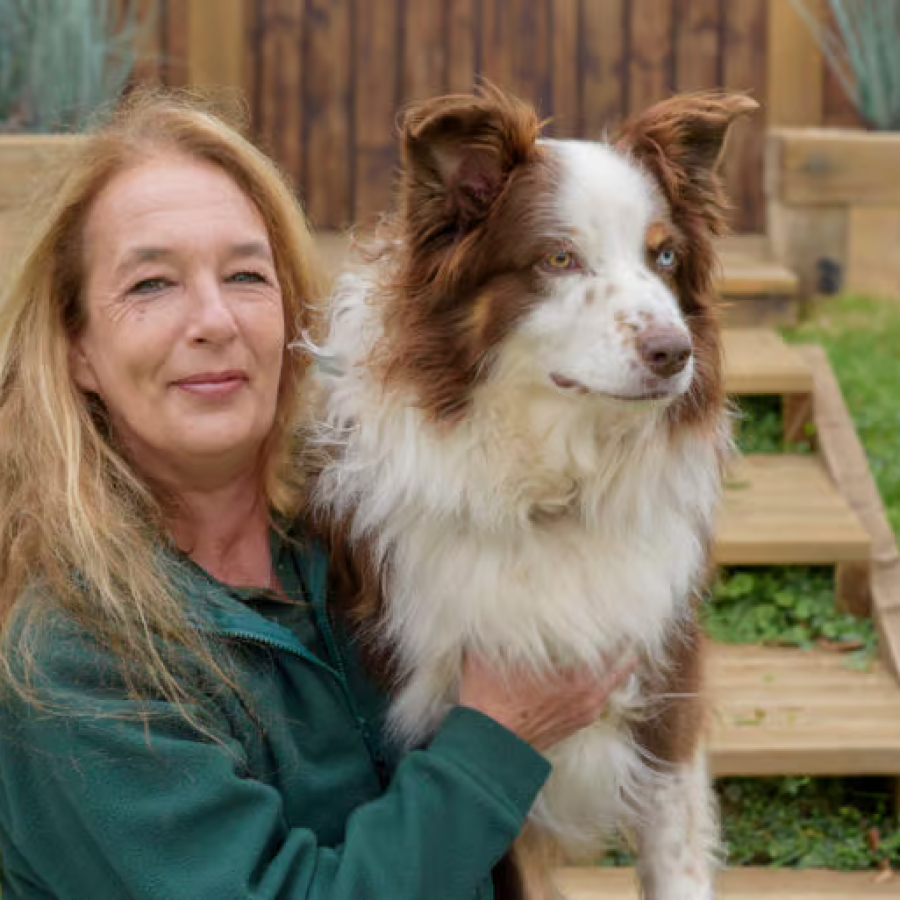
Yorkshire Terrier Dog Breed
Yorkshire Terriers are clever little chatterboxes with big hearts for their humans.

Yorkshire Terriers are clever little chatterboxes with big hearts for their humans.
Breeds like this may have extreme body conformation, which means exaggerated body features, or a flat face and shorter nose (brachycephalic). These characteristics can negatively affect their health and welfare, and you may face higher insurance and veterinary costs.
If you have your heart set on this breed, please consider rescuing a dog in need rather than buying a puppy.
Yorkshire Terriers (Yorkies) are one of the smallest breeds in the world, but they’re full to the brim with personality!
They’re bold, self-assured, feisty little dogs who seem to have no idea how small (and loud!) they are.
They love company and need lots of attention through play and grooming.
Yorkies are full-sized dogs in a miniature body - small but mighty! Bred as dogs that catch rats, they're energetic, determined, and very brave.
They also thrive on being with their people and being the centre of attention. So, if you want a dog that loves lots of playtime and snuggles, they’re a great bet.
They usually prefer to keep their distance from strangers until they’ve fully sussed them out, making friends in their own time. But once a Yorkie lets you into their heart, you’re there forever!
These little dogs need proper training and early socialisation (learning about being around other animals and people).
Otherwise, Yorkies will channel their persistent and fearless energy into inappropriate things like barking and lunging at dogs or visitors, barking at sounds outside, or growling and snapping if they feel threatened.
Disclaimer
While these breed traits give a general idea of what to expect from a specific type of dog, it's important to remember that every dog is unique. Just like people, each dog comes with their own distinct personality, quirks, and characteristics!

Yorkies can get on well with older children who respect their space and listen to their signals and body language when they’re uncomfortable.
They’re not suited to living with young or boisterous children who haven’t learned to be gentle and calm. Like all dogs, it’s important to supervise Yorkies around children to avoid any accidents or inappropriate interactions.
As one of the smallest dog breeds, Yorkies are delicate and easily injured in rough play.
Even so, they also know what they want and what they don’t, and they aren’t at all afraid to tell you!
For example, if a child tries to play with them or pick them up when they’re not in the mood, a Yorkie will growl to ask them to go away and will snap or bite if ignored to drive the point home.
Yorkies generally get along with other dogs – especially other small dogs like them – but they might see smaller pets as prey and their hunting instincts can kick in. Introducing small pets from a young age is vital.
Absolutely! They love being close to their humans, often on the lookout for a warm lap to snuggle on for a nap.
They may follow you around the house, eager to be involved in everything you do.
Yorkies are known for forming strong bonds with their families and might become very attached to one particular person in the home.
However, Yorkies need much longer to warm up to someone new. They’re not the kind of dog who will love meeting new people at the pub or café, or smother visitors with kisses.
They very much prefer to keep their personal space as they suss out new people, warming up slowly and building trust over time.
If not well-socialised (learning about being around other animals and people), Yorkies can become anxious. They may bark or growl at visitors and people they don’t know. So, make sure to spend time building their confidence when they’re young.
All puppies need to learn how to be around people, pets, and other dogs, calmly and politely (known as socialisation). They also need help to feel calm, comfortable, and confident in everyday situations like travelling, the sound of traffic, and being in busy places (known as habituation). This is essential to prevent tricky behavioural problems in the future, and you'll be off to a great start with your ongoing training.
Yorkies are intelligent and quick learners. They’re also pretty strong and independent, which can make training a bit of a challenge!
This breed is eager to please, but they might try to push the boundaries if they want something. Consistent, reward-based training is key.
Common behavioural issues to watch out for with Yorkies include:
- excessive barking and reactivity
- separation-related behaviour
- housetraining
- handling and touch sensitivity
- resource guarding
All dogs need reward-based training and to learn how to interact with other dogs, animals, and people. Without this, they can develop anxious or rude behaviours which can make them hard to manage and take longer to train in the long run.
As dogs mature, they go through several life stages that can change their behaviour and need extra training. We can help you with this through our free behaviour helpline.
Yorkies have a beautiful, silky coat that needs regular grooming to keep it looking its best.
Their fur is more hair-like than some other dogs, and it grows continuously! So, regular trimming is needed, especially around their eyes, ears, and paws.
Daily brushing with a simple comb helps prevent tangles and mats, especially if you’re keeping your coat long. But many people prefer a shorter “puppy cut” to make grooming more manageable.
They’ll need regular baths, nail trimming, ear cleaning, and dental care. This can be done at home if you train your dog to enjoy grooming from the start.
I might be tiny, but don’t underestimate my need for adventure! A daily walk and a bit of playtime will keep me happy. But if I don’t get enough, I might just turn the house into my own racetrack!
We Yorkies are clever and curious. Keep me entertained with puzzle toys, training, and games that use my nose. If I’m bored, I’ll find my own fun… and you might not like what I come up with!
I love to learn! I need extra help being confident in new or scary situations, and I’m quick to pick up new skills. But be patient, as sometimes I’ll test how serious you are about the rules!
You should expect a purchase price of £500 - £2,500 depending on the breeder, pedigree, and what health tests the parents have had.
The basic equipment these dogs need, like beds, toys, leads and harnesses, bowls, grooming equipment, and collars, could set you back several hundred pounds.
Other ongoing costs include basic training classes, pet insurance, vet bills, grooming, food, dog walking services and boarding fees.
Take our quiz to discover which breed is right for you
Take our quizPlease call our pet support line on 0300 303 9333 (7 days a week – 8.30am - 4pm)